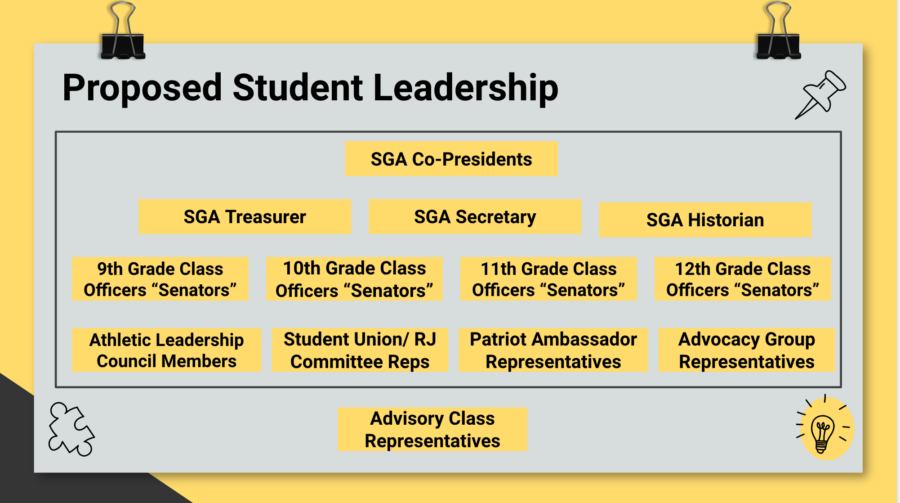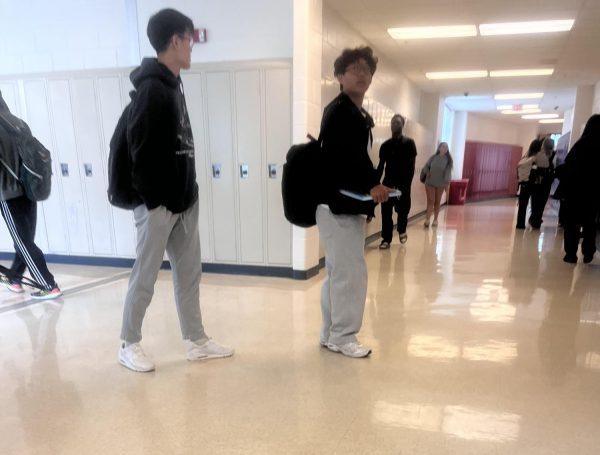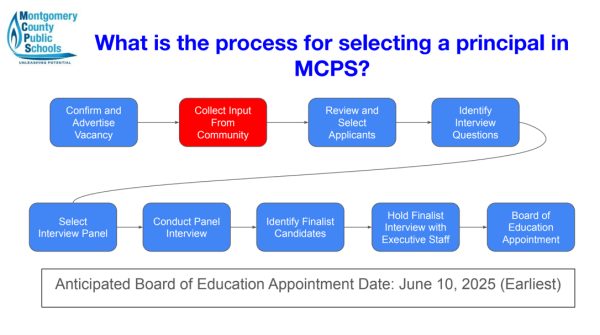Administration proposes new student leadership structure, causing mixed reactions from students
Administration has proposed a change to student leadership that would combine the different leadership groups within the school. Currently the Student Government Association (SGA) and Senior Planning (Splanning) have two separate class periods to plan for their organizations events. Ninth, 10th and 11th grades also have class planning groups that operate as clubs, meeting during lunch or after school.
The SGA class is led by student elected co-presidents. SGA’s main responsibilities are planning homecoming, the spring project and presenting testimony to the Board of Education. Splanning is a class made up of seniors, led by the senior class officers, and is mainly responsible for senior events including Putting on the Hits, prom and graduation. “Each leadership class or club in our school has a different priority and purpose. I think our leadership structure should remain the same, a change will only make it more difficult to get things done,” junior class president Kelly Ren said.
Administration’s proposed leadership plan would combine SGA, class planning officers of all grades, Patriot Ambassador representatives, student union representatives, athletic leadership council members and advocacy group representatives into one class. The SGA co-presidents will lead the class, class officers will lead under them and be renamed “senators” and representatives from the various other clubs would make up the rest of the class. “I think it’s time for a change and I’m glad administration is willing to work with us and listen to our concerns,” SGA junior Tati Pacheco said.
This proposed change was prompted by Principal Douglas Nelson’s desire for school activities to be more organized and for the planning of these events to include a wider range of students. As a first year principal, Nelson believes in reevaluating the structures in place in order to make improvements where he can within the school. “I’ve noticed that some of the work that SGA does and the work of Splanning seems to have a lot of overlapping. In some ways I don’t believe those activities work as well as they could, and I think that it’s reasonable to pose the question: If they are brought together in some way and they don’t exist separate from one another, are we possibly bringing these groups together in a way that will work better?” Nelson said.
While a major goal of the proposed leadership structure is to include more students in the planning of events, not all students agree it will have this effect. “The point of the reconstruction is to make class planning more inclusive and structured. This will do the opposite. It will create chaos. By taking the Splanning class away it will give students little motivation to participate,” a freshmen class officer said.
Ren shares the concern of decreased student participation if the proposed leadership structure is implemented. “The first semester of senior year is stressful with college applications and I’m worried that without a designated period, seniors will not have time out of school to plan our necessary events,” Ren said.
Sophomore Nikki Cohen, a member of sophomore planning, understands both perspectives. “I feel like getting rid of senior planning could have positives and negatives. On one hand it could give more students opportunities to participate in class planning. On the other hand it could lead to an unorganized structure and be taken less seriously, which is unfair to the students who are really committed to class planning,” Cohen said.
Nelson acknowledges that the proposed leadership structure may pose difficulties and that having devoted time to planning class events is beneficial. But Nelson questions whether it is essential. “Why do all high schools not do it this way? I can’t imagine how at Wootton we face something truly different than 26 other high schools in the school system. If other schools don’t necessarily have their student leadership in this structure, then I think we can figure that one out,” Nelson said.
Another reason administrators raised for the proposed leadership change was bias within the selection process for the SGA and Splanning classes. Typically the criteria to decide which students are admitted into the Splanning class is based on involvement and participation in class events throughout high school, although the specific criteria varies with each senior class. To be admitted into the SGA class students must go through an application and interview process, with the final decision being made amongst a group of students in SGA. “I had a really negative experience applying to SGA last year. I felt my interview was really unprofessional. They asked inappropriate questions and made me feel inferior. I later found out they made rude remarks about me in a shared Google document, saying I was the worst interview they had,” an anonymous junior said.
Administration has allowed for student input through listening sessions and changes to the proposal have been made since hearing students’ voices, though Nelson could not speak to the specific adjustments. The leadership structure for next year has yet to be finalized and administration does not know when a final plan will be announced. Until then, students anxiously await to hear how their leadership roles within the school will be impacted and if they will be a part of the proposed student leadership class for next year.
Your donation will support the student journalists of Thomas S. Wootton High School. Your contribution will allow us to purchase equipment and cover our annual website hosting costs.







